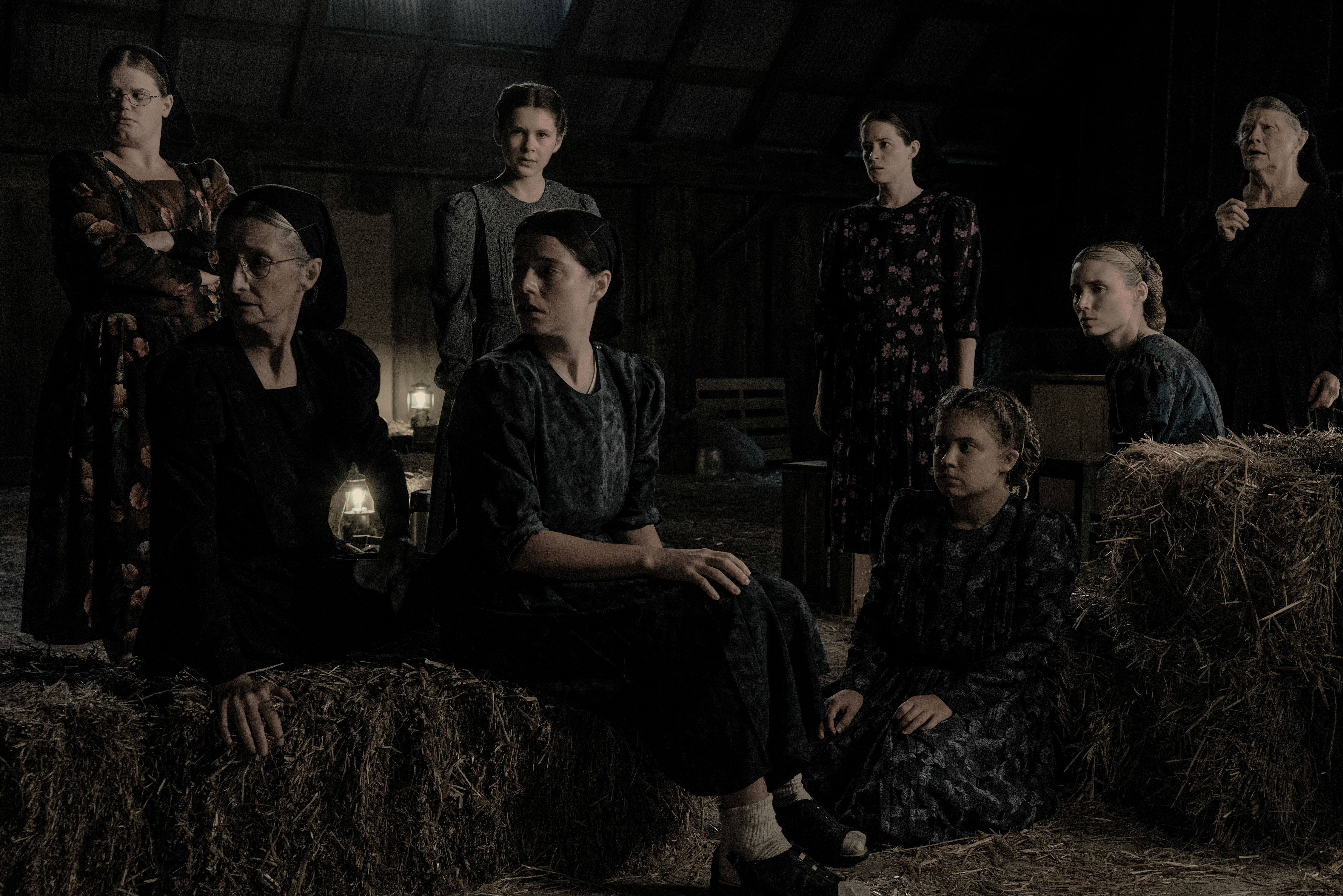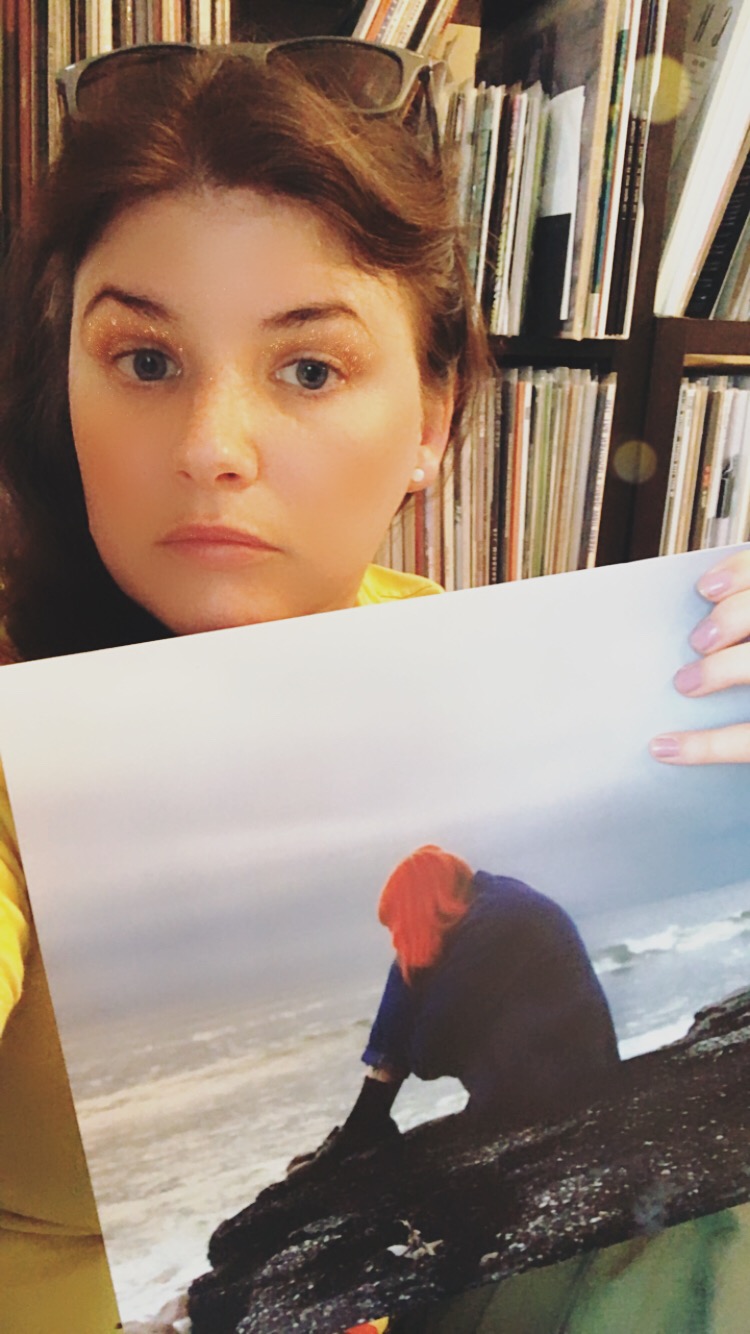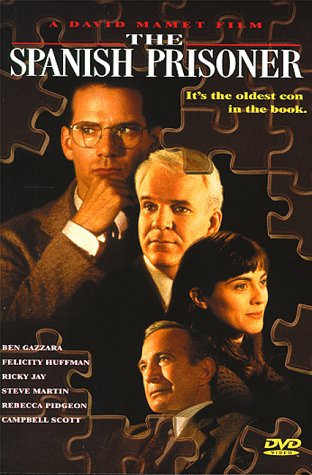We're happy to be nominated in four categories for the Reader's 2024 Best of Chicago poll. Find them all here and cast your ballot by December 31!
The CHIRP Blog
KSanders writesFight or Flight: A Chicago International Film Festival Special Presentation of Women Talking

written by Kyle Sanders, reporting from the 58th Chicago International Film Festival
Aside from giving international filmmakers around the world a place to share their art, the Chicago International Film Festival also provides a series of "Special Presentations," or those highly anticipated films from celebrated filmmakers most likely to find their names on various short lists during Awards Season. This year, Chicagoans had the chance to catch sneak peeks of Darren Aronofsky's The Whale, Martin McDonagh's The Banshees of Inisherin, and Sam Mendes' Empire of Light. Standing toe-to-toe with those male Hollywood heavyweights, is actress/director Sarah Polley, who shared her latest work, Women Talking.
Polley and cinematographer Luc Montpellier received this year's Visionary Award from CIFF, and I got the chance to attend the event (held at the Music Box Theater) and see their latest (and third overall) collaboration. Women Talking is an engrossing drama about a group of women in an isolated Mennonite colony who gather to discuss what to do about the ongoing sexual assaults they've endured from the men of the community. It's adapted from Miriam Toews' best-selling novel, and couldn't be more prescient in a post-Roe v. Wade America.

Women Talking
D Rock: Apocalipstick Beatz writesVinyl Rules or My Pandemic Listening Project
 by D-Rock: Apocalipstick Beatz
by D-Rock: Apocalipstick Beatz
VINYL RULES: or My Pandemic Project of Listening to My Entire Record Collection
A vinyl collection is a funny thing. Lots of people have them, but what is remarkable is how unique everyone’s collection is. Each collection will tell a story, almost too personal, if you allow it to. Each record is a little slice of life; what you were doing when this came out, or what little apartment you lived in when. Sometimes it’s a particular emotion or memory that you tie an album to. Sometimes good, sometimes not, but either way, it becomes a collection that is uniquely yours.
I started collecting vinyl in college, to play on a little Crosley, similar to the Fisher Price one I had as a kid. It started out innocently enough; I’d only collect my top ten records of all time. But as more music I loved was released on vinyl and the more I was exposed to life, the bigger the collection became.
At some point while living in Chicago, to curb the amassing collection, I made a new rule that I could only buy records by artists that I had seen live at a show. This was a good rule as a way to make me go to shows even when it was freezing out, and maybe even talk to the band at the sometimes awkward, sometimes amazing merch table. And so the little collection grew larger. Then I got married, and my husband has added his musical taste to mine and so, 12 years into marriage, I ended up with a lot more jazz, Dua Lipa and Katy Perry than I ever imagined for myself.
KSanders writesChasing the White Whale: Band, The Kings of the World, and The Big Payback

written by Kyle Sanders, reporting from the 58th Chicago International Film Festival
It's good to have goals, but at what point does one's pursuit of a dream become an obsessive nightmare? The Captain Ahab's and the Willy Loman's of the world could tell you that keeping your eye on the prize can blind you from the reality of limitations, lack of resources, and just plain bad luck. Yet achievement is not always impossible--sometimes it just never arrives the way you intended it.

Band
In the d(m)ocumentary Band (Iceland), becoming an arthouse success isn't so easy for the Post Performance Blues Band, a spandex-clad trio of women all nearing forty. Despite modest success in their Reykjavik community, they raise the stakes in their ambitions of becoming avant-garde pop stars within a year's time. If they don't achieve their dream, then they'll hang up the act for good. Do Alfrun, Hrefna, and Saga have what it takes to make their dream a reality, or is this just reckless ambition doomed to disappoint?
KSanders writesOut of One’s Depth: Huesera, Fairy Folk, and A Human Position

written by Kyle Sanders, reporting from the 58th Chicago International Film Festival
The cultural conversation around gender and identity may be progressively changing, but that shouldn't suggest it has become any easier to understand. I guess you could say society is in the midst of a "transition," as old philosophies regarding gender and sexual orientation have expanded and evolved into new territories that are at once refreshing and unfamiliar. In other words, reactions to such ideas have been both celebratory and violent.
In a way, this is a dialogue that many have been anxiously wanting to have, but just never knew how to approach it. For others, the topic goes so far beyond their traditional way of thinking that it's too frightening to comprehend. It's a conversation that's been difficult to start, and its conclusion remains uncertain. Perhaps that explains why the Chicago International Film Festival features several LGBTQ+ titles from filmmakers who have taken that conversation into creative territories ranging from delightful to horrific.

Huesera
Taking the latter approach is Huesera (Mexico). Directed by Michelle Garza Cervera, this horror film involving folklore and witchcraft involves a heterosexual couple overwhelmed with joy upon learning they're going to have a baby. Mother-to-be Valeria, a former lesbian teen punk who once stood against domestication, soon begins having terrifying visions of what she believes is La Huesera, "the bone woman." While her paranoia is dismissed by her unconcerned husband and family, she desperately turns to dark magic as a means of protecting herself and the future of her growing family.
Kevin Fullam writesThe Fourth Wall: The Spanish Prisoner
Welcome to The Fourth Wall, CHIRP's e-conversation on cinema. This week's subject is the 1997 film The Spanish Prisoner.
This edition is written by CHIRP Radio volunteers Kevin Fullam and Clarence Ewing.

Kevin:
The Big Con. It's long been a favorite cinema staple of mine. You can't sleepwalk through Big Con films -- you gotta keep your eyes and ears peeled at all times, and definitely, absolutely trust no one. As an added bonus, the Everyman protagonists of these tales are usually in the dark as much as the audiences, making them the perfect proxy. We're attached at the hip and invested from the get-go.
In David Mamet's The Spanish Prisoner, Joe Ross (Campbell Scott, whose muted temperament is the perfect fit for this sort of role) has created a "Process." Manifested as a notebook of charts and formulas, it's a classic MacGuffin -- we have no idea what it exactly involves, except that it's worth astronomical sums of money to the company which employs him... or to anyone else who winds up getting a hold of it.
While on the island of St. Estèphe to discuss the Process with company investors, Ross rubs elbows with new secretary Susan Ricci (Rebecca Pidgeon, Mamet's real-life wife) and wealthy traveler Jimmy Dell (Steve Martin), the latter of whom eases himself into Joe's world by giving him a package to "deliver to his sister in New York." Worried it might be something illegal, Joe opens the package -- which is revealed to be an innocuous 1930s book about tennis.
Right around this time, relations between Joe and his employers turn frosty, and he starts to fret about not receiving fair compensation. Jimmy (having reconnected in the Big Apple) suggests enlisting outside legal counsel. Can he trust him? What about Susan? And later there's an FBI team (headed by Ed O' Neill) involved in the case as well. But are they actually federal agents? Just when exactly does the con stop... or is it still going when the credits start rolling?